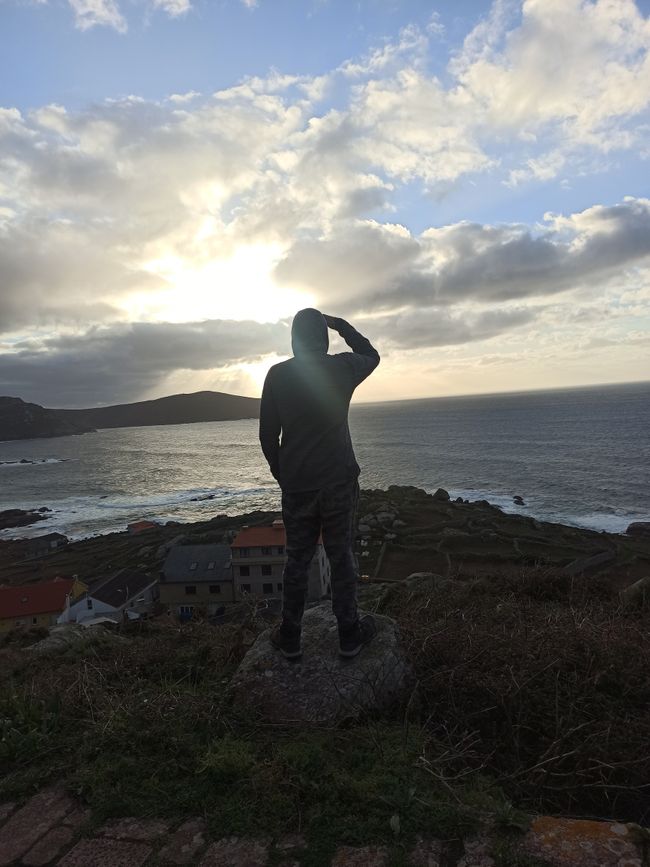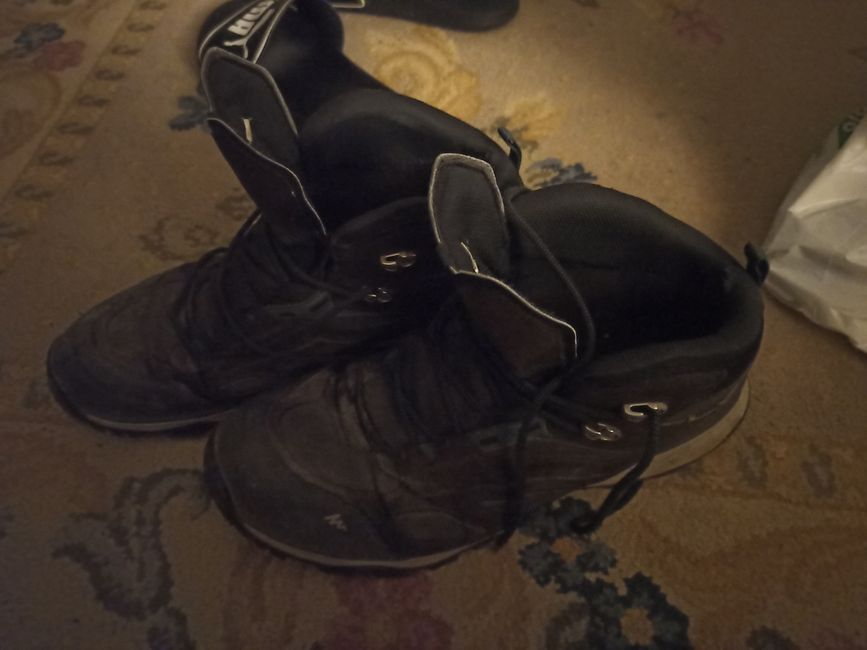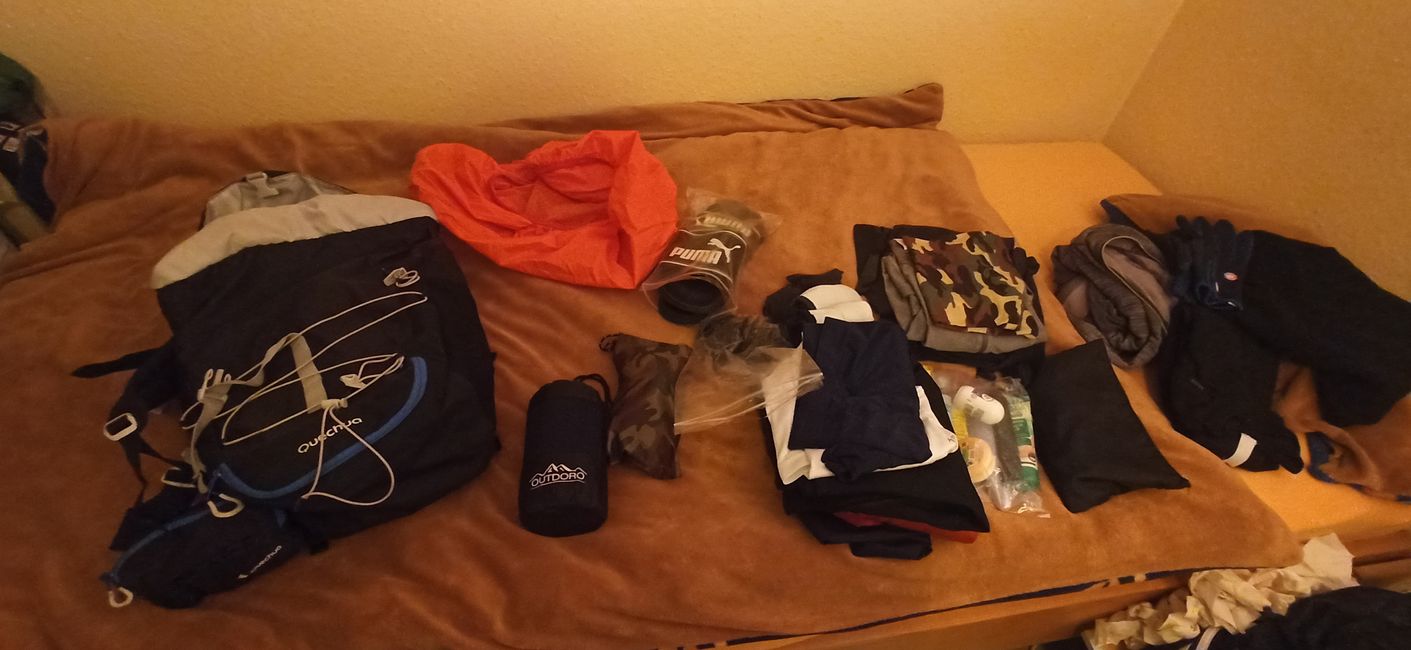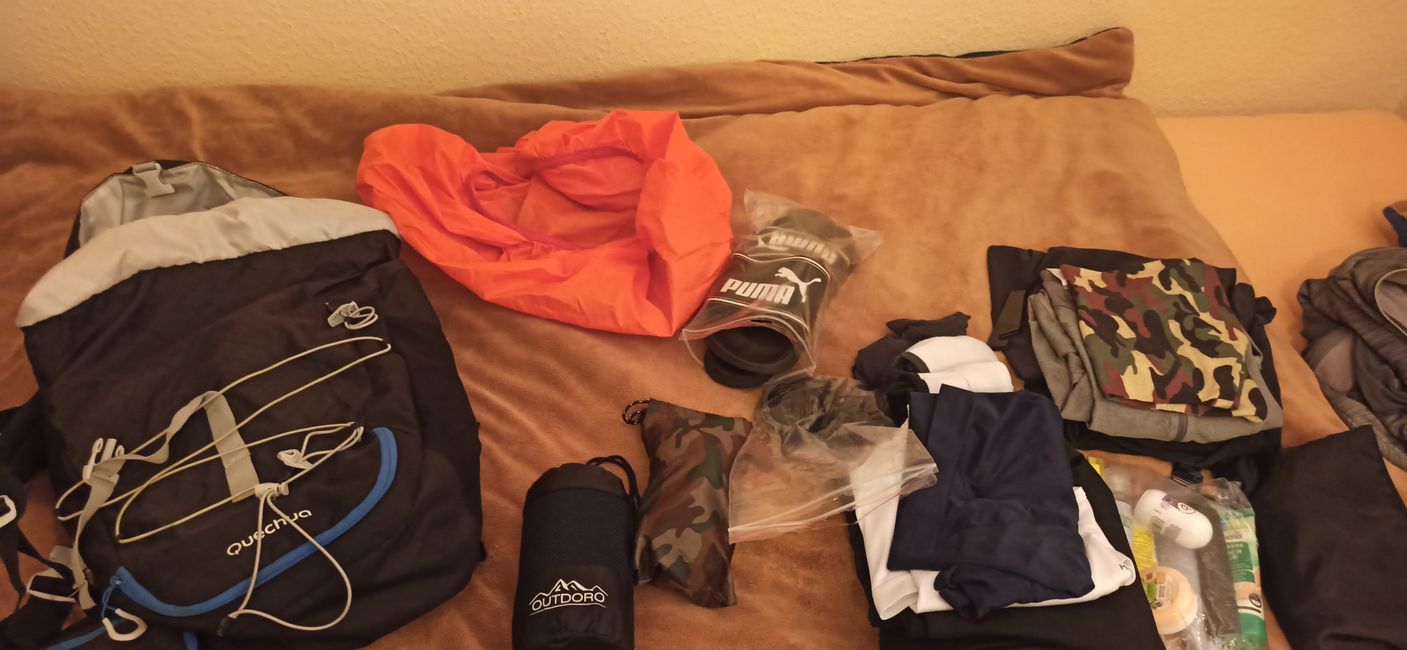My equipment
Whakaputaina: 27.11.2023
Here is the equipment I took with me. I didn't weigh my backpack, but the rule of thumb is not to carry more than ten percent of your own body weight. It should be noted that you also have to add food (emergency rations, nuts, daily provisions) and drink to your luggage. And depending on the route, there may not be any shops along the way where you can restock your supplies.
You can't see everything in the photo, but I'll try to describe everything and maybe even talk about the costs here and there:
-Backpack: I have a 30l backpack from Decathlon for around €50. On my first Way of St. James to Porto I had a 50l backpack, but this was not necessary or if I am traveling with a tent, the current backpack may be too small. But I would like to get a new backpack that has a separate compartment at the bottom and more hooks.
-Hiking shoes: I also had these from Decathlon and I paid just under €70 for them. My first hiking boots, which were too small, cost around €100. I would also like to expand my equipment and get new hiking boots that are a little lighter.
-Clothing: 2 tank tops, 1 T-shirt, 2 long-sleeved sweatshirts (one slightly thicker), 2 hiking jackets, 1 rain pants, 1 hiking pants, 1 jogging pants, 1 shorts, 3 pairs of hiking socks, 1 pair of regular socks, 1 medium-sized towel , 1 small towel, 1 thin rain jacket, 1 rain cape, 2 boxer shorts, 2 round shells, 1 hat (not used), 1 pair of gloves (used once. Not worth it, even if it's cold, because you have to check something on your cell phone need or want to take a photo)
-Hygiene: Although I went there by bus and could theoretically take hygiene products with more than 100ml content with me, I still tried to take as little as possible with me because you can always buy some extra and there is soap in many hostels and shower gel. I had the following with me: soap, rice for hand washing, 2 grade shampoo, deer tallow, horse cream, deodorant, roll-on deodorant, hand cream, face cream, hygiene soap, wet wipes, 1 toilet roll, toothpaste and toothbrush. Then a small plaster set, gauze bandage, plaster roll, nail scissors, blister plasters and a few tablets such as paracetamol and ibuprofen in case of emergency. Everyone can see what they need, but here again: In every town there is a pharmacy and sometimes even in front of it there are vending machines where you can get some products at any time, 24 hours a day.
-Other equipment: an ultra-light sleeping bag for €35 (really worth it. Light in weight and doesn't take up much space, easy to pack and keeps you warm, but of course not against sub-zero temperatures), rain cover for the backpack, hiking stick ( from Decathlon for 45€. Foldable and not used), notepad, travel guide, multivitamin tablets, tissues, slippers, power bank, headlamp (approx. 45€. To charge and it was really worth the money. There are different modes and you can use it definitely see it well), 3 small travel bags to organize in the backpack, cutlery (very important, even if there was usually cutlery in the hostel, but you also prepared something small on the go), seat cushion (that was definitely a game changer and I will take it with me every time now), headphones.
The bottom line is that I didn't use some of it, but that doesn't mean I won't need it next time. In short, every Camino and every hike is special and different. To prepare well, you should take a look at the infrastructure on the way and also roughly the weather. And the basic recommendation is: less than more.
Even if all the equipment costs a little money, you have to remember that a lot of it can be used in everyday life and will last a long time.
Whakautu
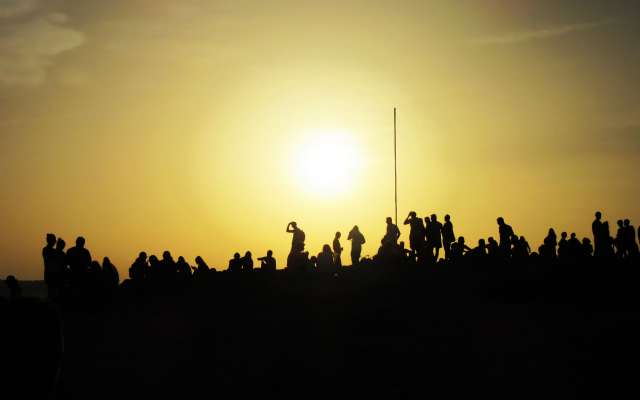
Ripoata haerenga Paniora

